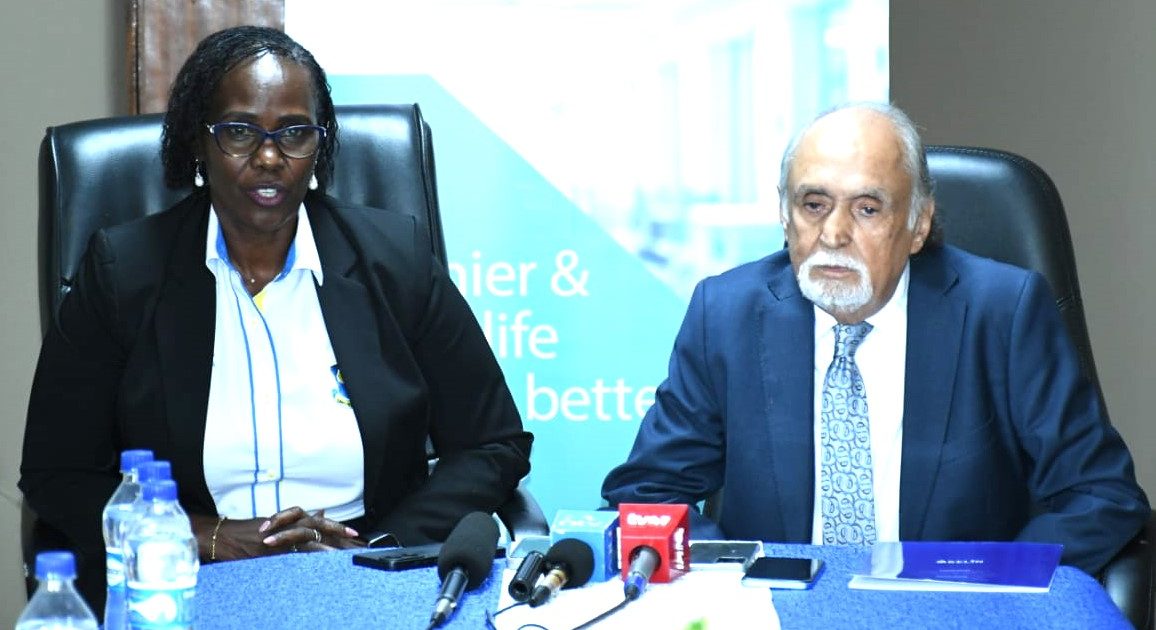The Great Lakes University of Kisumu (GLUK) has entered a strategic partnership with Med Aditus Pharmaceuticals (MAP), a US-based pharmaceutical company, to equip students with in-demand skills to enhance their employability in the evolving pharmaceutical sector.
As part of the collaboration, MAP has secured a long-term, zero-cost lease on a 10-acre plot of land within the university’s campus in Miwani ward, Muhoroni Sub County, to establish a state-of-the-art pharmaceutical manufacturing facility.
This facility will serve as a training ground for students, offering hands-on experience with modern manufacturing technologies and helping to develop a skilled workforce to support the plant’s operations.
Prof Hazel Miseda, Vice Chancellor of GLUK, described the partnership as a transformative opportunity for both the university and its students.
She emphasised that the collaboration would revolutionise training and research, positioning GLUK as a model institution in pharmaceutical education by leveraging technology in the learning process.
“We are excited to welcome Med Aditus Pharmaceuticals, a company committed to advancing pharmaceutical manufacturing technologies. This collaboration allows our students to gain invaluable practical experience with the latest innovations in the field, giving them a significant competitive edge as they enter the workforce,” Prof Miseda said during a press briefing at GLUK.
The university, she added, together with its international partners, is also developing a tailored pharmaceutical curriculum, ensuring that students are equipped with the skills and knowledge necessary to meet the evolving demands of the pharmaceutical manufacturing industry.
Professor Dhiren Thakker, CEO of Med Aditus Pharmaceuticals, explained that the partnership would provide access to advanced research and foster a robust workforce ecosystem, addressing the growing demand for highly skilled professionals in the pharmaceutical sector.
MAP, Prof Thakker announced that the organisation will launch an education and training initiative in partnership with GLUK and other international universities to meet the demand for the critical workforce needed to support the anticipated growth of the pharmaceutical manufacturing industry in Kenya.
“The universities train scientists, healthcare and business professionals making it easy to tap talent from this pool. However, we will look for the best candidates across the country to engage at our facility,” Prof Thakker assured.
The new pharmaceutical plant in Kisumu, scheduled to launch in 2025, will begin mass production and distribution of affordable, high-quality medical drugs by 2028, serving both Kenya and the wider East African region.
Health specialist Professor Khama Rogo, said Kisumu County was privileged to host the transformative project.
Rogo encouraged local communities to take advantage of the training opportunities available through the initiative.
He noted the need for a new generation of industrial pharmacists to meet the demands of Kenya’s growing pharmaceutical manufacturing sector.
“The pharmacy industry in Kenya is facing a shortage of skilled industrial pharmacists, and this initiative will directly address that gap,” Prof Rogo explained.
“This modern pharmaceutical facility in Kisumu will require a highly trained workforce, and through this partnership, GLUK and MAP are preparing students to take up these roles.
Prof Rogo observed that Kenya’s health sector is plagued by the human resources challenges occasioned by universities churning out medical graduates who do not match the needs of the industry.
The collaboration, he said, represents a groundbreaking approach to bridging this gap by aligning academic training with industry requirements.
“This is the first programme of its kind, directly connecting the market expander or the manufacturer with a university to prepare specialists who are ready to enter the workforce. It will play a crucial role in addressing the issue of graduate unemployment,” Prof Rogo concluded.
By Robert Ojwang’





